The Sopranos series: plot, analysis and cast
The Sopranos(The Sopranos, 1999-2007) is a hit HBO series centered on Tony Soprano, one of the most imposing bosses in the New Jersey mob.
The series consists of 6 seasons and it is one of the most acclaimed television fictions of all time, and it even continues to top the lists of the best series. But why? What does this series have that makes it remain oblivious to the passage of time?
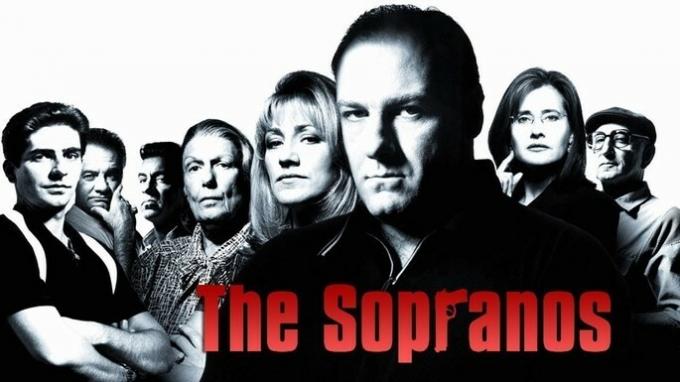
Argument
The series revolves around a family that lives in New Jersey that, despite appearing normal, the reality is that the patriarch, Tony Soprano, is one of the most feared bosses of the mafia.
Likewise, Tony Soprano suffers from panic attacks and anxiety attacks, episodes that he experiences for the first time after the departure of some ducks that are in his garden pool. This fact leads him to attend clandestinely to the consultation of a psychiatrist, Dr. Jennifer Melfi.
Meanwhile, the protagonist must direct his stressful criminal business that he carries out with his uncle and his nephew. Meanwhile, Tony makes believe that he is dedicated to waste management and, at the same time, has to deal with family problems that erupt in his house with his wife Carmela, his daughter Meadow and his son Anthony Jr.
Analysis of the series
The Sopranos has the peculiarity of being one of those series for which time does not seem to pass, one of which he will remain eternally in the olympus of television fiction and that continues to snatch the position from many of they. But what was the origin of its success? What makes it so interesting? What can we highlight about it?
Next we will investigate some elements for which it stood out at the time of its premiere and for which it is still as alive today as then.
A context conducive to success
For years, the cinema had already offered the general public stories of gangsters and gangsters. He had given great titles like The Godfather (1972), the culmination of its genre. But, until the arrival of The Sopranos, there had been nothing like it on the small screen. So, could this series be considered the turning point of television fiction?
Unlike other contemporary series, this one came at a time when the viewer was not used to a series of almost cinematic quality, except for Twin peaks (1990-1991).
In this sense, HBO began with series such as The Sopranos a business strategy based on the quality of its productions, to which it remains faithful today, from the script to the post-production of the content.
But how did you get it?
A complex character
Who is Tony Soprano? One of the secrets sine qua non For a series to "hook" the viewer from the pilot episode is precisely the way its characters are presented. In this sense, that the viewer empathize with the protagonist also helps.
And how can viewers empathize with a mobster if we don't know that world firsthand? Well, what if the first scene features an "ordinary" man in a psychologist's office?
At first, the protagonist is not a mobster. Tony Soprano is a seemingly ordinary man whose anxiety and various accumulated traumas have led him to sit in front of the doctor to try to find an explanation for that kind of existential crisis that goes through.
And, when the viewer assumes that Tony is one more man in the world, suddenly, he discovers that he is a criminal.
The three main cores of Tony's life
Tony Soprano's life unfolds in three main environments: family, the mob, and Dr. Melfi's office. And what is original about all this?
Well, you could say that these are the three "star elements" of the series. We attend a television show that not only shows us what the inner world of the mafia is like, but also how a feared leader deals with his life, as a normal person, has its family problems and, something more unique that makes us wonder is what a mobster does attending therapy.
The family
On the one hand, his life in his home, with his wife and his children. It is an atypical family, the marriage between Tony and Carmela is based on mutual interests and, throughout the series, it presents different ups and downs.
On the other hand, the behavior of Livia, Tony's mother, is not easy for the protagonist to carry. His mother is one more headache in Tony's life during the first three seasons.
Mafia
On the other hand, Tony constitutes another family outside of his domestic environment. His underground group, the mafia. Here Tony develops in a hostile, violent, criminal environment and carries out different murders throughout the series.
The therapy
Finally, another fundamental path in Tony Soprano's life is made up of the sessions with the psychiatrist, with whom he experiences different ups and downs and tensions throughout the fiction.
It is throughout these sessions where we witness as spectators the "inner world" of a very dangerous type but, after all, with his existential problems.
Likewise, as the series progresses, the consultation also reveals details of the protagonist's childhood.
Soundtrack with implicit meaning
It is clear that music is one of the most prominent elements of the soundtrack of the series. The inclusion of certain musical pieces came to complete the meaning of it.
In this case, the creator himself David Chase was part of the selection of these themes that include a large diversity of genres, and where the rock of the great decades, musically speaking, of the 60s, 70s and 80s is very Present.
In this series, music not only fulfills the function of recreating certain environments but also adds meaning to the plot. Which is represented in the lyrics of some of these songs that suppose an extra information to the one offered by the image or the dialogues.
Without going any further, the opening song of the series Woke up this morning (1997) a piece of blues genre by the band Alabama 3, already allows us to guess the personality and the type of life that Tony Soprano has.
One of the most talked about endings of all time
When we attend the soprano finale, no matter what year this happens, we find before our eyes one of these outcomes that, due to its unpredictability, unexpectedness and abruptness, invites us to apply the interpretation personal. Well, if there is something that this series has had, it has been precisely a multiplicity of readings.
Today, some viewers keep wondering if the ending of this series is really open or just the Chapter is an accumulation of tracks, the result of which is reached after displaying over and over again what happens before the fade to black.
The last thing that appears before our eyes is the image of a family, the Sopranos, who are preparing to have dinner in a restaurant. Meanwhile, strangers enter and leave through the door of the restaurant where they are. Then 10 seconds of fade to black invade the screen. So what about Tony Soprano? Is this ending the sign of a story that refuses to end?
The reality is that, although we do not know David Chase's intention with this scene, the end of the Sopranos has kept the series alive for years and is part of debates.
But, there is no eternal secret and, for the benefit of the great followers of the series, the creator David Chase, more than a decade after the start of the controversy, revealed the end. The creator hinted in an interview that he “had that death scene in mind two years before the series ended” and that “we could all die in a restaurant”. So is this final scene the prelude to the demise of the Soprano family?
Distribution
Tony Soprano (James Gandolfini)
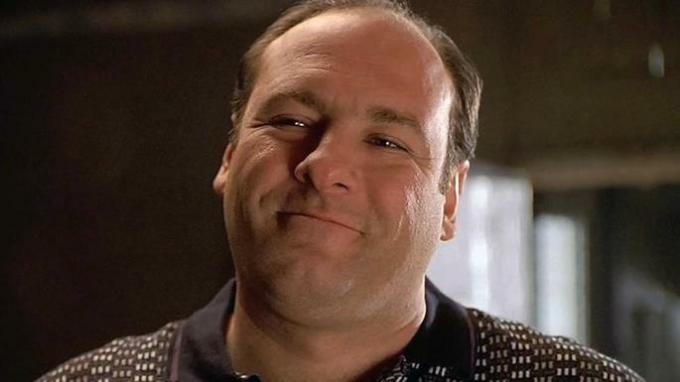
He is the head of the most powerful gangster organization in New Jersey. But, at the same time, he is a family man and the husband of Carmela, with whom he has two children, Meadow and Anthony Soprano Jr.
Behind the violent and dangerous man shown there is a self-conscious and depressed man who He decides to go to therapy to explain his state of mind after suffering attacks of panic.
Carmela Soprano (Edie Falco)

She is the wife of Tony Soprano. She is a woman involved in her family while her husband is a mobster. She clearly represents the stereotype of a "mobster's wife", who ignores the infidelities of her husband, from whom she is separated for a time.
Meadow Soprano (Jamie- Lynn Singler)
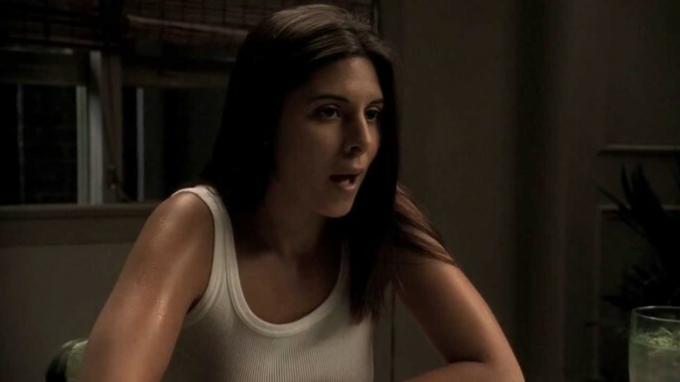
She is the eldest daughter of Carmela and Tony is characterized by the fatal relationship that she has with her mother, since her antithesis results from her. She is a young girl who has a vision of the future away from the mafia, a business that is alien to her. At first he is rebellious and somewhat spoiled. But he matures as the series progresses.
Anthony Soprano Jr (Robert Iller)

Alias "AJ" is the youngest son of Tony and Carmela Soprano. She represents the typical spoiled young man who does nothing but play video games. She is diagnosed with ADD. She is a bad student and has bad behaviors.
Livia Soprano (Nancy Marchand)
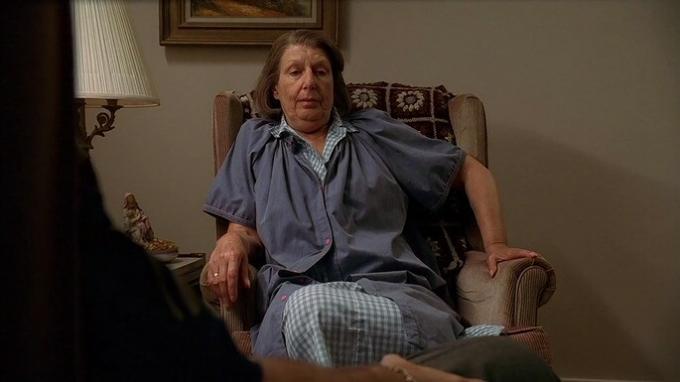
She is Tony Soprano's mother, she is manipulative and sometimes cruel. She is a widow and refuses to go to a nursing home. She is present for the first three seasons, as she later passes away.
Janice Soprano (Aida Turturro)
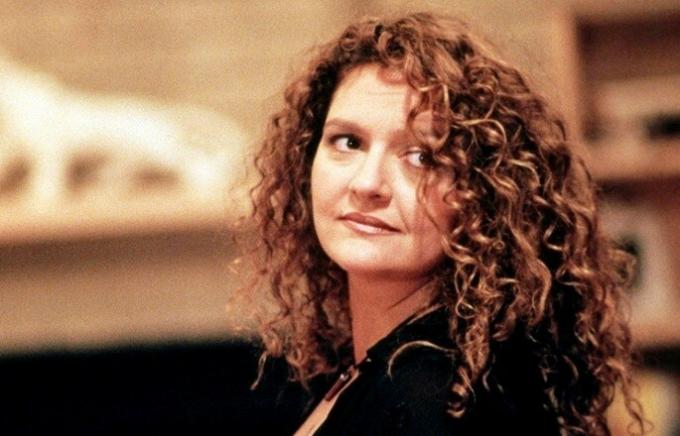
She is Tony's older sister who is not involved in the mafia but is dedicated to making life miserable for those around her, including her brother. Therefore, her relationship with him is often strained.
Jennifer Melfi (Lorraine Bracco)

She is the doctor who treats Tony Soprano psychologically. A responsible person in her work who hardly loses her composure. Despite dealing with a mobster, from whom she sometimes does not know what to expect. Meanwhile, the psychiatrist tries to connect her patient's past life with the present.
Corrado Soprano Jr. (Dominic Chianese)

Usually known as "Uncle Junior" or "Junior", he is the uncle of Tony Soprano, brother of his late father. After the death of Johnny Boy, Junior becomes the boss of the New Jersey mob. He is a man who resists his nephew taking command, which often makes him a fussy and selfish man.
Christopher Moltisanti (Michael Imperioli)

He is the nephew of Tony Soprano taken in by him to join the mafia, due to the fact that his father protected Tony. He begins as an immature young man but becomes one of the most representative members of the mafia.
Silvio Dante (Steven Van Zandt)

He is Tony's advisor in the Soprano crime family. He is a serene person, within his environment, who does not usually bet on violence.
Newark: the prequel to the series

Newark (2021) is a film written by David Chase and directed by Alan Taylor that is inspired by Tony Soprano's youth. It shows that this series that dismissed the twentieth century in style is still going on and will continue to give its followers something to talk about.



